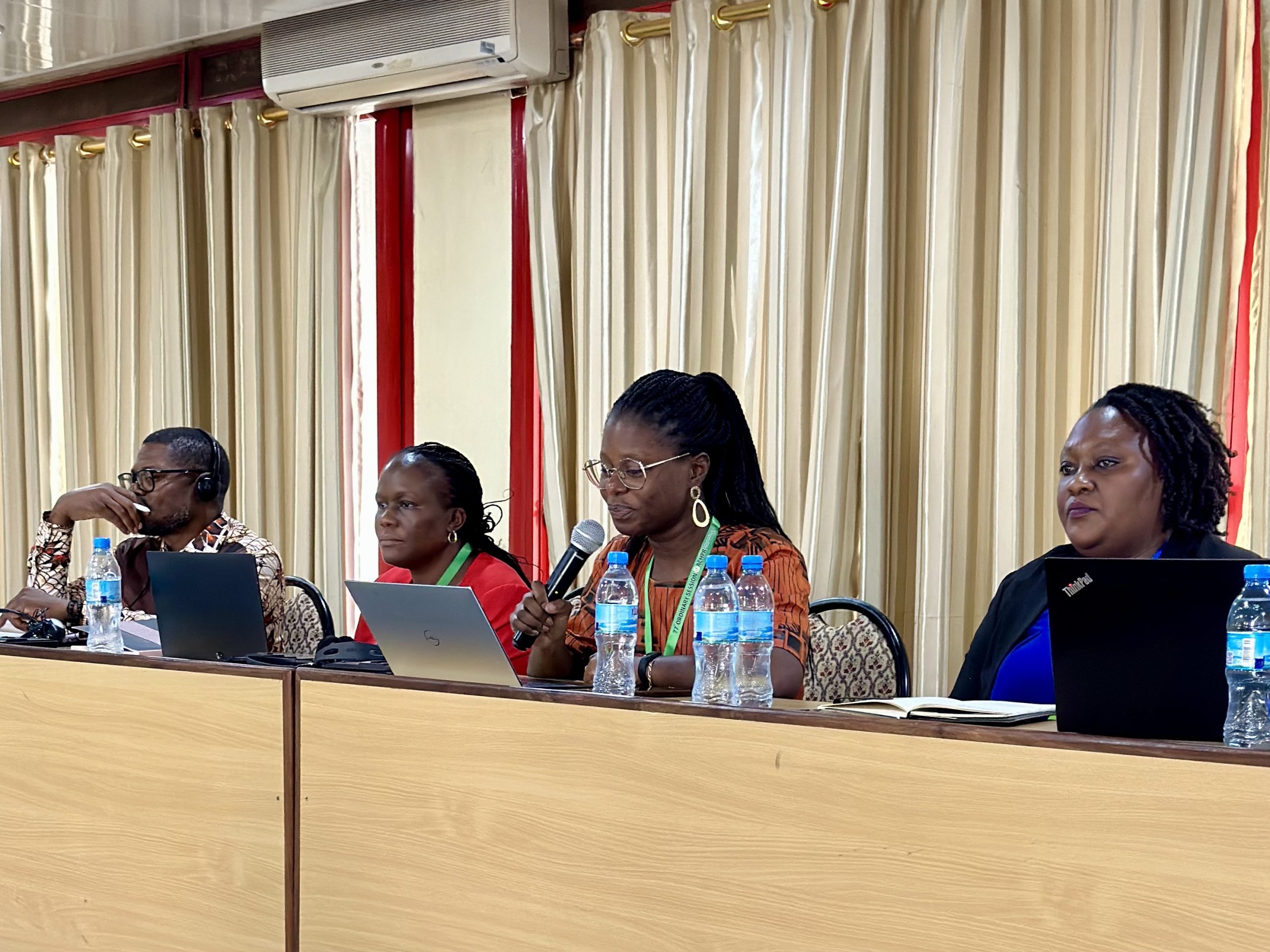On 19 October 2023, in collaboration with KUTAKESA and African Defenders, ISHR held an event on the sidelines of the African Commission on Human and Peoples’ Rights on restrictive laws affecting human rights defenders (HRDs) in Africa. The event mainly focused on recently observed trends in Africa with respect to laws limiting the enjoyment of freedom of association and the impacts on the rights of defenders. The event provided an opportunity to reflect on the experience of those human rights defenders who work in hostile environments and how legislative reform may better promote and protect the rights of defenders.
Florence Nakazibwe from the International Center for Non-Profit Law (ICNL) noted that despite progress on the continent, most recently with the adoption of a law protecting HRDs in the Democratic Republic of the Congo (DRC), the recently validated policy on HRDs in Tanzania, and the Southern African Defender Network model law on HRDs, there is reason for concern about the increase of restrictive laws negatively impacting the environment for defending rights in Africa. Nakazibwe noted several trends including: the use of restrictive assembly laws; repression targeting specific groups (HRDs working on climate, the extractive sector, indigenous peoples, women human rights defenders and youth); the misuse of money laundering and counter terrorism laws; restrictions on freedom of expression; digital authoritarianism; and restrictions around cooperation of civil society with each other.
Cristóvão Godinho from KUTAKESA, the movement for human rights defenders in Angola, shared the negative impacts of the bill on the status of NGOs, which was previously deemed unconstitutional but can now be adopted by the majority in parliament. The bill was introduced under the auspices of addressing terrorist financing and money-laundering risks in the non-profit sector. However, as drafted will impose arbitrarily harsh regulatory and supervisory measures, and will allow for inappropriate intervention by the government into NGO operations, further restricting the independence and autonomy of Angolan civil society organisations, which are already operating in a highly repressed environment.
Tinomuda Shoko from Zimbabwe Lawyers for Human Rights raised the alarm about Zimbabwe’s Private Voluntary Organisation (PVO) Amendment Bill, introduced in November 2021 to “counter terrorism and prohibit political lobbying from non-governmental organisations”, revised and presented in with stricter and more repressive clauses in June 2022 and passed by the Senate in February 2023. The legislation is currently before the President of Zimbabwe for his final decision on its enactment but NGOs remain the dark as to the current state of the bill or amendments apparently made by the President. The bill gives broad powers to the government to interfere in civil society organisations’ governance and activities, including designating them as “high risk” or “vulnerable” to terrorism abuse, revoking their registration, or replacing their leadership. It also includes harsh penalties for administrative offences related to registration and provisions that allow for the banning of civil society organisations from “engaging in political activities.”
Several speakers shared strategies to address such restrictions, including: the key role of bar associations; creating clusters of lawyers engaged in civil society protection; strategic litigation; guidance by African courts on how to comply with human rights during emergencies; providing expertise to state authorities to improve laws; promoting the independence and strengthening of the judiciary around protecting civil society; and coalition building and solidarity.




